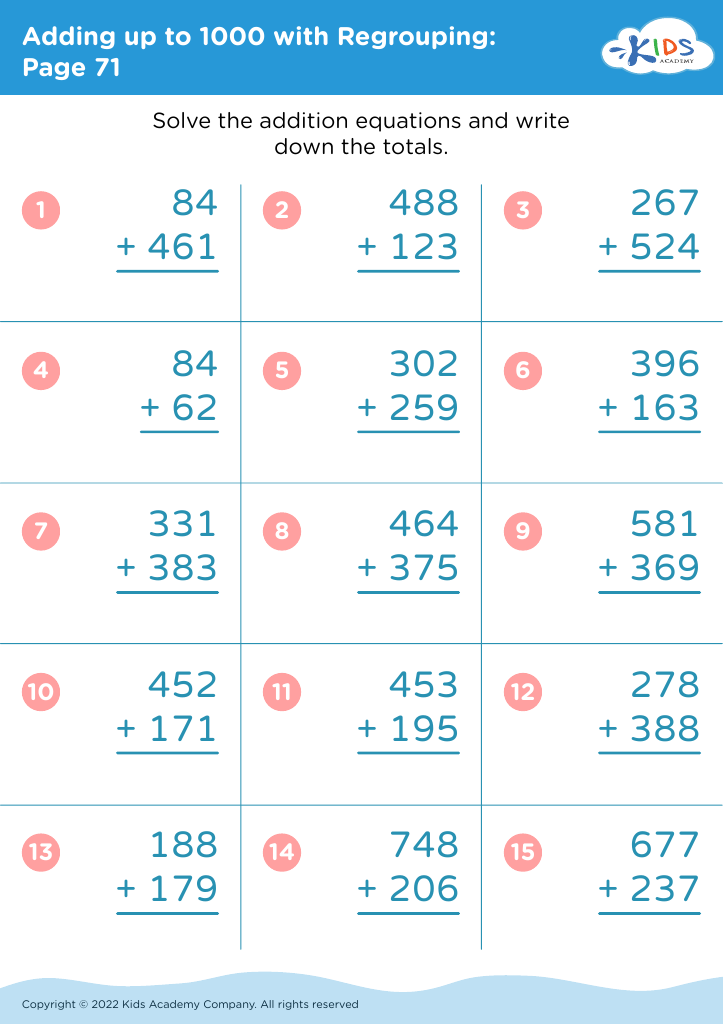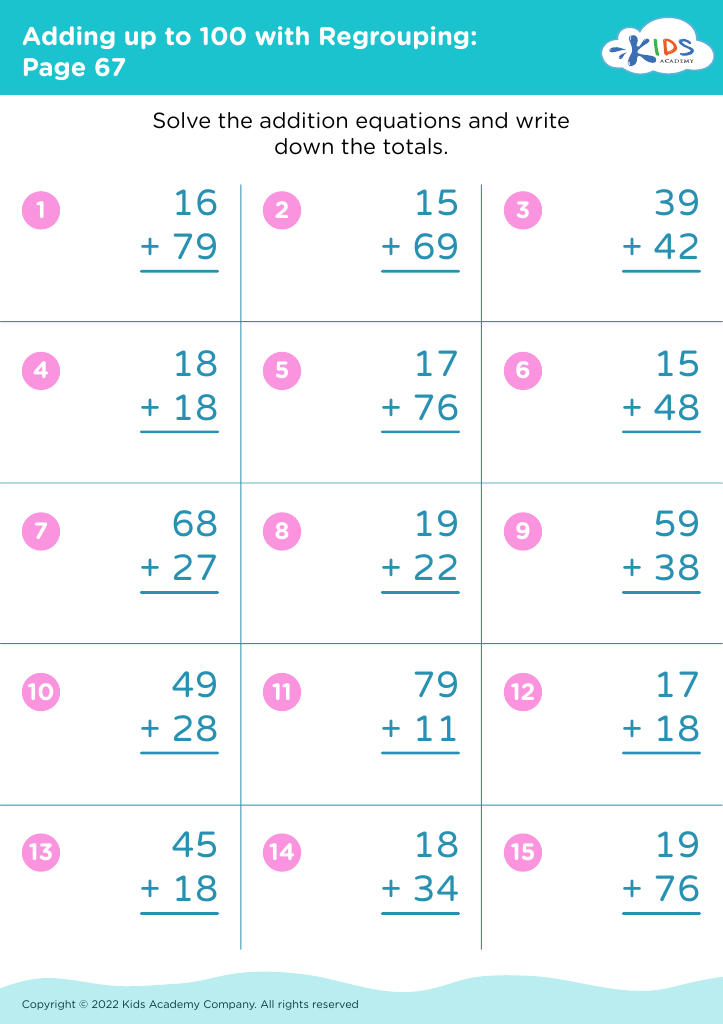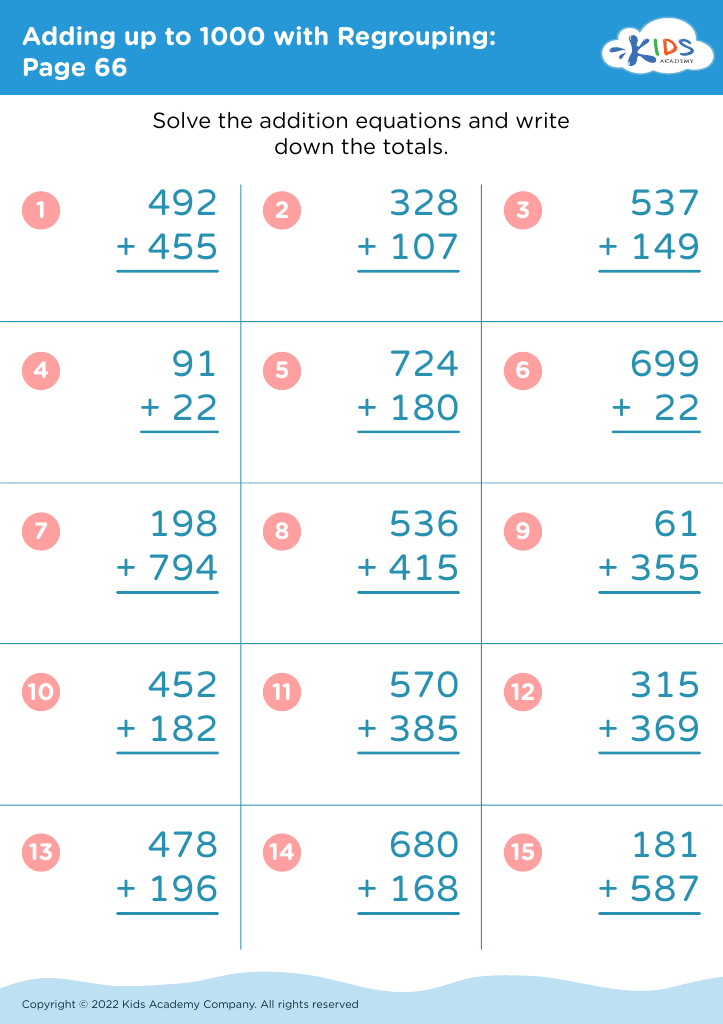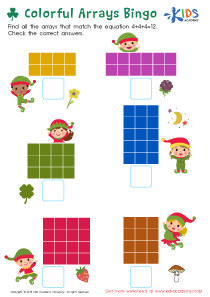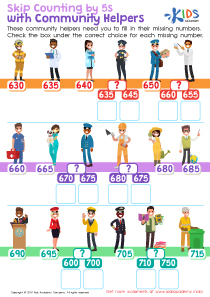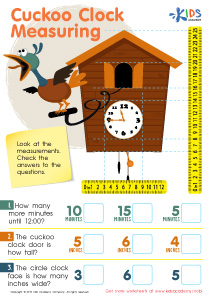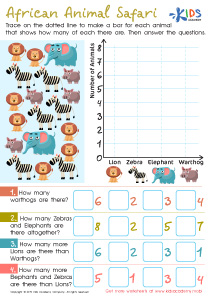Improves counting skills Grade 2 Addition & Subtraction Worksheets
4 filtered results
-
From - To
Enhance your second grader's math proficiency with our Addition & Subtraction Worksheets designed to improve counting skills. These engaging and interactive worksheets provide a fun way for students to practice addition and subtraction while developing essential counting techniques. Incorporating colorful visuals and relatable scenarios, our resources cater to various learning styles, ensuring students grasp fundamental concepts easily. Perfect for classroom use or home practice, these worksheets feature progressively challenging exercises that build confidence and fluency in math. Equip your child with the strong counting foundation they need for higher-level math success—download our Grade 2 worksheets and watch their skills flourish!
Improving counting skills in Grade 2 addition and subtraction is vital for multiple reasons that impact a child's overall academic development. At this stage, children begin to grasp the foundational concepts of mathematics, which reinforces their confidence and curiosity toward learning. Mastering counting enables students to perform addition and subtraction with greater ease, thus allowing them to tackle more complex problems in the future.
For parents and teachers alike, fostering these basic skills helps identify individual learning styles and difficulties. Early intervention can be deployed to support those who struggle, preventing later challenges in math. As children become proficient in these skills, they enhance their problem-solving abilities, critical thinking, and can understand more advanced concepts in mathematics as they progress through school.
Moreover, strong counting skills contribute significantly to everyday activities like telling time, budgeting, and understanding measurements. Ultimately, by prioritizing the development of these skills, parents and teachers lay a robust foundation for lifelong learning and instill a positive attitude towards mathematics. This nurturing environment can drive a child's success, not just in math, but across various subjects and life scenarios, reinforcing their love for learning.


